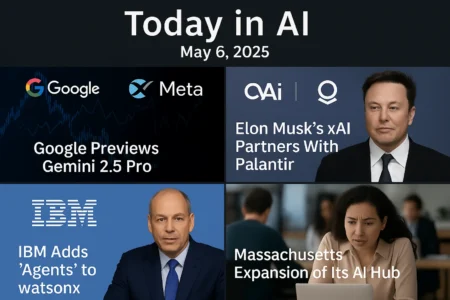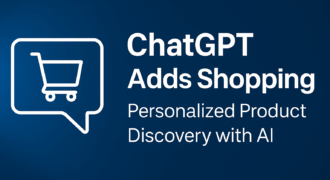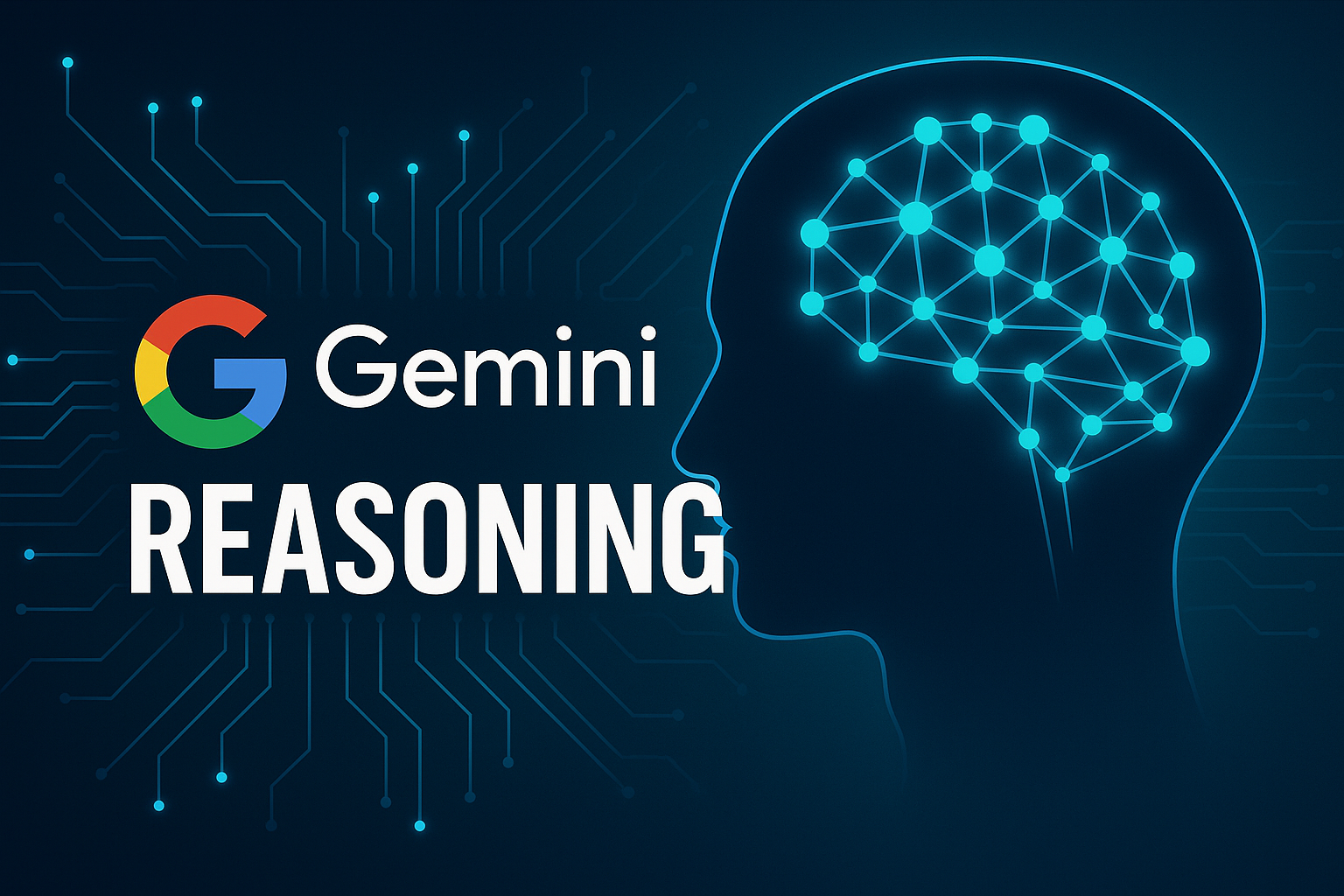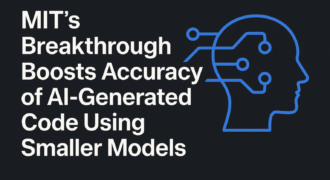Today in AI – May 6, 2025
1. Google Unveils Gemini 2.5 Pro Preview Ahead of I/O Conference
Just ahead of its annual I/O developer conference, Google has released a preview of its Gemini 2.5 Pro model, labeled the “I/O edition.” The updated model comes with major performance improvements in coding and function execution. Developers using the Gemini API, Vertex AI, and AI Studio will gain access to tools that significantly improve code generation, bug resolution, and system integration. The model reportedly surpasses competitors in recent benchmarks like LMArena and WebDev Arena.
Notably, Gemini 2.5 Pro places special emphasis on accurate function calling, a known weak point in earlier LLM iterations. Google hopes that the improvements will encourage wider adoption of its tools across both enterprise and independent development environments. As speculation rises about Gemini 3.0, the release signals Google’s strategic play to position itself more competitively against OpenAI and Anthropic in the developer ecosystem. Source
2. xAI Joins Forces with Palantir and TWG Global for AI in Finance
Elon Musk’s AI venture xAI has entered a high-profile partnership with Palantir Technologies and TWG Global to bring AI deeper into the financial and insurance sectors. The initiative aims to integrate xAI’s Grok large language model and the Colossus supercomputing platform into real-world financial workflows.
Palantir brings its expertise in enterprise data analysis and intelligence, while TWG Global offers capital and industry access. Together, they aim to accelerate AI-powered analytics, fraud detection, customer service automation, and strategic modeling. The move reflects a growing appetite in the financial industry for trusted, scalable AI solutions. For xAI, this partnership marks a step toward becoming a serious player in B2B markets. Source
3. IBM Expands watsonx Orchestrate with Custom Agent Tools
During its Think 2025 conference, IBM announced major upgrades to its watsonx Orchestrate platform. The new features allow developers to build, deploy, and refine AI agents that can automate multi-step workflows across enterprise environments. The tool includes agent lifecycle management, integration with internal data sources, and support for fine-tuned models.
The upgrades reflect IBM’s shift from monolithic AI platforms to modular, developer-oriented ecosystems. Enterprises can now use watsonx not just for data science, but for orchestrating cross-departmental processes such as HR onboarding, finance reporting, and customer case resolution. Analysts see the move as IBM’s response to growing demand for scalable, domain-specific AI implementations. Source
4. Massachusetts Invests in Regional AI Leadership
Massachusetts Governor Maura Healey has unveiled a strategic initiative to make the state a national leader in artificial intelligence innovation. The plan includes direct investment into AI hubs in Boston and Western Massachusetts, targeted research funding, and the appointment of a director to oversee the Massachusetts AI Hub.
The initiative includes partnerships with local universities, AI startups, and public sector organizations. Its goal is to stimulate local innovation while ensuring equitable access to training and job creation. Observers view the plan as a model for regional AI development—one that bridges economic policy with emerging tech strategy. It also reflects a growing trend of localized AI acceleration, with states seeking to shape their own tech futures independently from federal regulation. Source
5. eBay Introduces AI Shopping Assistant to Guide Buyers
eBay has launched a conversational AI shopping assistant to help users navigate its product listings through real-time, tailored interactions. The assistant, which is now live in selected regions, provides recommendations based on user preferences, previous behavior, and contextual search history.
The feature is designed not only to simplify decision-making, but also to re-engage users who might feel overwhelmed by the marketplace’s sheer size. As competition intensifies among e-commerce platforms, eBay’s strategy hinges on personalization and AI-driven engagement. Early user feedback has been positive, citing improved confidence in purchases and a more intuitive shopping experience. Source









